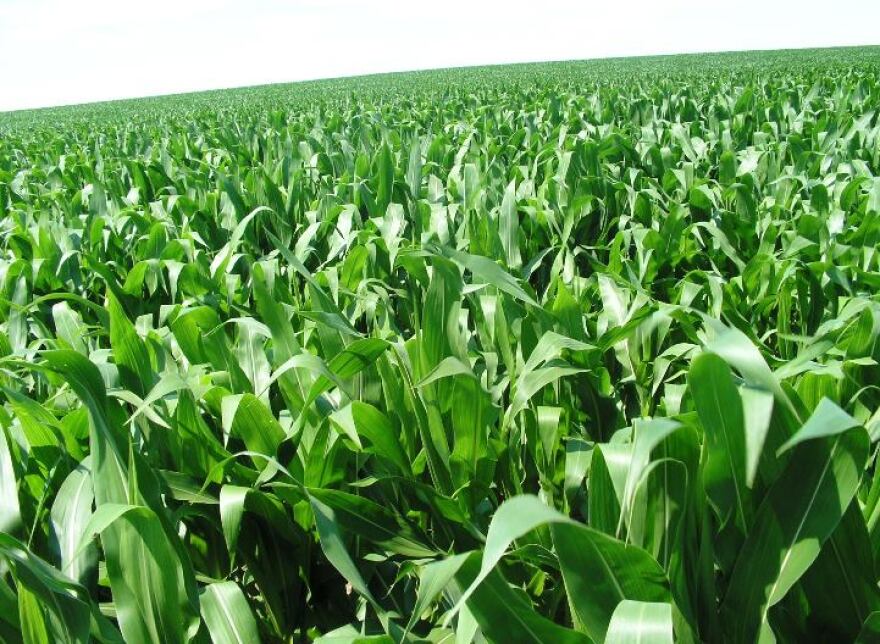Farmers in the Midwest were devastated by a crippling drought in 2012, and the federal crop insurance program paid out a record $17.3 billion.
To understand the impact, Harvest Public Media reporter Bill Wheelhouse took a tour of Livingston County, Illinois. Farmers there received by far the biggest insurance payout in the nation.
One such farmer is Doug Wilson, who lost nearly half his corn to the drought last year. It was his worst harvest in more than 30 years of farming.
But today -- less than a year later -- he’s not suffering financially.
We're going to be better off for quite some time because of last year's safety net
“You carry home insurance hoping your house doesn’t burn down. We carry crop insurance hoping our crops don’t burn down, but last year they burned down. Kind of literally,” Wilson said.
And the burn was so severe in Livingston County that about $154 million was returned to the county in crop insurance indemnities – tops in the country.
Why the big payout in Livingston County? It was in the heart of the drought. The University of Illinois’ Bruce Sherrick, who tracks such issues, says it was a “happy accident.” The heat baked Livingston County right at the time of pollination and a high percentage of farmers carry crop insurance there.
Banker Gary Bressner, who works in the county seat, Pontiac, said the insurance had a huge impact.
“They were still buying machinery and equipment because they did not get devastated like they would have done if they didn’t have their insurance coverages,” said Bressner.
As Congress tries again this fall to negotiate a new five-year farm bill, farmers and others in rural America point to this impact as the reason why crop insurance exists.
And farmers do have some skin in the game. In Livingston County, for example, farmers paid about $9 million for their share of the premiums.
The government’s share, though, was close to $11 million. The government also was on the hook for a large portion of the payouts.
Today’s subsidized policies are certainly popular with farmers. For the 2013 crop year, more than 270 million acres are covered – continuing a steady annual increase since 2008.
What crop insurance and other farm subsidies look like in the future is an important part of the farm policy discussion in Washington. In Livingston County, banker Gary Bressner offered one key takeaway from the 2012 disaster, at least for Livingston County:
“We’re going to be better off for quite some time because of last year’s safety net.” Bressner said.
The hope for many farmers is that some clarity will emerge out of Washington this fall on the future safety net. However, there’s no insurance for that.







